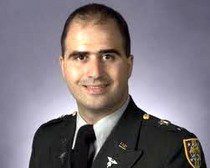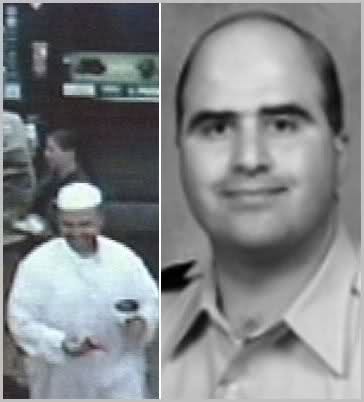All, this is a re-hash of an article I posed 3 years ago. The question is could this happen again within the AMEDD?
Â
The old maxim “where you stand on issues is largely a function of where you sit†is borne out in spades as one views the “Army Internal review Team: Final Reportâ€(Fort Hood Killings).
Â
Press reviews have focused on the statement Army: No single action could have prevented Fort Hood killings. I strongly disagree with that conclusion; in fact, acceptance of that statement is a denial of the true nature of the tragic event.
Â
Perhaps the statement was, in part, an effort to give comfort to those who faced the horrible ordeal and had doubts about the quality of their response. However we are left with the impression that the system worked.
Â
 One single action along a time-line of almost ten years would have aborted those senseless deaths. The lack of personal and professional courage among those who prepared Major Hasan for his profession is inexplicable. His fellow physicians and mentors, specialist in the field of psychiatry, from all reports, either chose to stand silent or lacked the guts to pursue the issue.
One single action along a time-line of almost ten years would have aborted those senseless deaths. The lack of personal and professional courage among those who prepared Major Hasan for his profession is inexplicable. His fellow physicians and mentors, specialist in the field of psychiatry, from all reports, either chose to stand silent or lacked the guts to pursue the issue.Â
We have followed the obvious pain and suffering among the fellow soldiers and loved ones of the victims of that fateful day. Time heals all wounds and at some point in the future these emotions will turn to bitter sweet memories. Little has been said about the unknown tortured souls left in the wake of Major Hasan’s counseling sessions. The extent of that damage may never be known.
Â
Additional troublesome questions about: How many of Major Hasan’s patients complained about his bizarre counseling? Were they taken seriously or dismissed because of the nature of the complaints? How did this behavior escape the attention of external evaluators? And finally, How could a promotion board elevate Captain Hasan to a Field Grade Officer with Congressional review and approval?
Â
 One single action by anyone in the selection panel for his fitness for medical school, one single action by military leadership or his classmates, one single action by the many individuals in his radically oriented  speeches, one single action by those who guided him through his internship and psychiatric residency. (perhaps, if he were in a Pathology residency he would have escaped detection), one single action at his new station Fort Hood –could have ended his military career. No excuses.
One single action by anyone in the selection panel for his fitness for medical school, one single action by military leadership or his classmates, one single action by the many individuals in his radically oriented  speeches, one single action by those who guided him through his internship and psychiatric residency. (perhaps, if he were in a Pathology residency he would have escaped detection), one single action at his new station Fort Hood –could have ended his military career. No excuses.Â
The author is not a casual observer of the military medical landscape. A draftee, trained as a combat infantryman, combat medic and healthcare professional he served in the Office of the Army Surgeon General and retired as the Chief of Staff of the 7th Medical Command. Over the course of a military career senior officers and non-commissioned personnel are confronted with sensitive issues which demand action. Religious zealotry is not new and comes from all quarters. Failure to deal with it in a timely decisive manner is destructive to good order and discipline and in the Fort Hood event, tragic death.
Â
Those who were guilty of “Sins of Omission†will probably have some sleepless nights.
Â





0 Comments